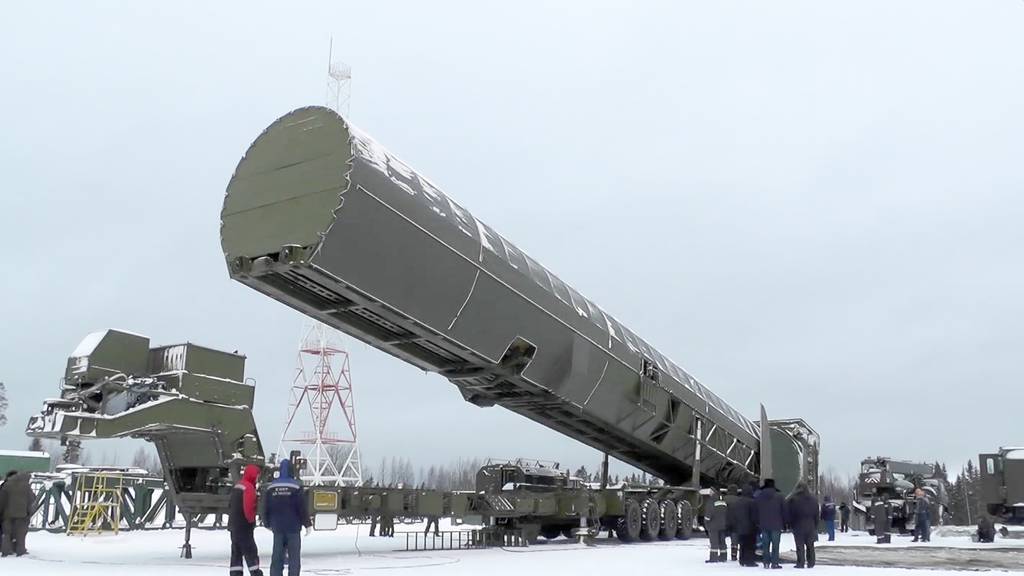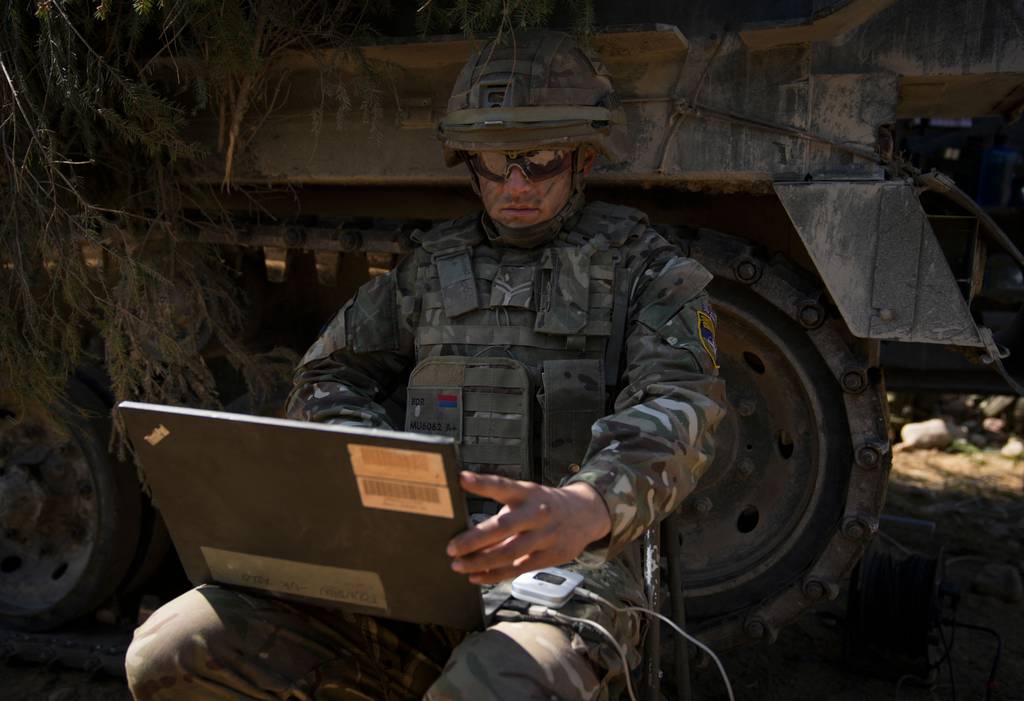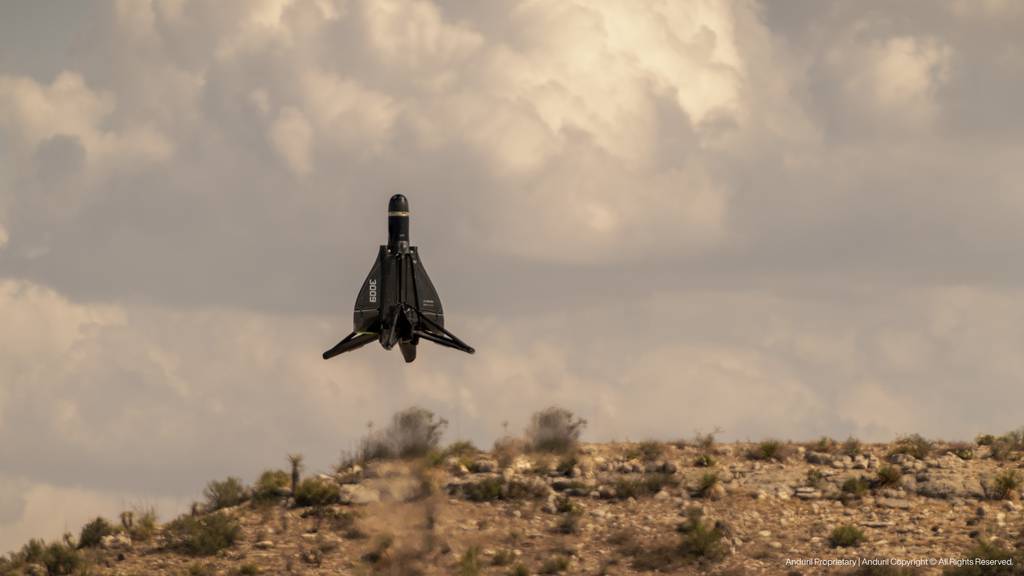Russian leaders have high hopes for new nukes this year — again
MOSCOW — The Russian ministry of defense has declared 2024 as the year when several nuclear weapons will enter

MOSCOW — The Russian ministry of defense has declared 2024 as the year when several nuclear weapons will enter the inventory of Moscow’s strategic forces, moving a number of goalposts that were meant to be reached last year.
Deputy Defense Minister Alexei Krivoruchko said on Jan. 26 that the entry into the armed forces of the Sarmat strategic missile system, Tu-160M bombers and the Borei-A nuclear submarine Knyaz Pozharsky are the main tasks for 2024. The objectives have remained the same since December 2022, when Defense Minister Sergei Shoigu announced atomic-weapons plans for the then-upcoming year during a speech at the Defence Ministry Board.
The development of the Sarmat missile system has been behind schedule for a long time, and only one successful flight test of the missile is recorded. This is due to the fact that the production and testing of the rocket are under the jurisdiction of Roscosmos, which suffers from low profitability, accumulated debts and increased losses.
The CEO of Roscosmos, Yuri Borisov, in a December 2023 interview with Rossiya 24 TV channel, said that the corporation had lost 180 billion rubles ($2 billion) of export revenue due to the strong impact of sanctions.
The closure of access to Western technologies and components required the search for alternatives, which led to the fact that Roscosmos enterprises incur additional costs, as due dates for equipment deliveries approach.
The desire to reduce costs led to the fact that from 2019 to 2021 Roscosmos laid off 17,000 workers, and in 2023 halved the staff of the headquarters office.
Due to lack of funds, Roscosmos seeks to find investments in cooperation with countries such as Algeria and Egypt, and in 2023 entered the borrowing market for the first time, planning to issue bonds worth 50 billion rubles.
RELATED
:quality(70)/cloudfront-us-east-1.images.arcpublishing.com/archetype/X5QDZ22KKFH2VHU6OI5QSPGIXQ.jpg)
As a result, orbital launches have decreased and stagnated at the level of 15-26 launches per year for the last eight years. Test launches of Russian land-based intercontinental ballistic missiles also decreased from 6-10 in 2013-2017 to 2-5 in 2018-2023, publicly available figures suggest.
Roscosmos subsidiaries involved in the production of Sarmat have financial and production problems. In particular, the Proton-PM plant, which produces the missile’s propulsion system, “faced limited access to Western equipment, tools, raw materials of imported origin and an increase in the interest burden on loans,” director Ivan Krasnov said in 2022.
As stated in the company’s corporate magazine, officials instead bought Russian, Belarusian or Chinese machining and foundry equipment.
In addition, several top Proton-PM managers were arrested last year on charges of embezzlement to the tune of 195 million rubles in connection with planned equipment upgrades, regional media reported.
Chemical Automatics Design Bureau (CADB), which produces the second stage of the Sarmat missile, is in a pre-bankruptcy state. The company has had a chronic shortage of working capital.
After the start of the war, money appeared, but while employees’ wages came through on time again, other CADB contractors are still having difficulty getting paid, a source at the company told Defense News on condition of anonymity to discuss sensitive information. Management also failed to modernize the workshops, as was promised in late 2021, the source added.
Plant managers have been selling non-core assets, like a production site and a canteen for 247.8 million rubles, according to the source.
Meanwhile, the Kazan Aviation Plant (KAP), located in Kazan, Tartastan region, is engaged in the modernization of the existing Tu-160 bombers to a Tu-160M standard, while also producing new planes. The government has previously said the company had prepared four modernized Tu-160M, one of which was transferred to the Ministry of Defense in 2022. In 2023, the Ministry of Defense continued testing it together with Tupolev Company, while the rest of the aircraft are continuing factory testing.
Tupolev is on contract to deliver 10 new bombers by 2027. The first Tu-160M, an upgraded Soviet-era plane, made its first flights in January and December 2022. The second one started factory tests only one year ago, making it unlikely that four upgraded bombers could have been delivered in 2023.
“KAP produced 1-1.5 aircraft per year, that is, it is not able to fulfill the plans of the Defense Ministry,” said Pavel Luzin, senior fellow at the Center for European Policy Analysis, a U.S.-based think tank.
The company is said to be lagging with the modernization of its production facilities, which was supposed to be completed by 2020. In addition, there is the bite of Western sanctions.
“Due to the sanctions, there is a problem of access to the latest machines and tools, high-quality composite materials, high-strength steel, electronic components and other material,” said a professor at the Moscow Aviation Institute who wished to remain anonymous. “There is a replacement in Russia and Asia, but the quality leaves much to be desired. A lot of time is spent on improvements and not everything can be found in the required quantity.”
In addition, KAP has been experiencing a shortage of workers for years. A year before the war against Ukraine, the Tatarstan region’s minister of industry and trade, Albert Karimov, said that 70% of industrial enterprises in the region needed workers, 26,000 thousand people. Among the companies experiencing the greatest shortage, Karimov named the KAP plant.
As a result of ongoing delays, the Russian Ministry of Industry and Trade previously sued Tupolev for 5.8 billion rubles as a penalty under the Tu-160M contract.
According to TASS reports, Russia’s state-owned news agency, the Borei-A-class submarine Knyaz Pozharsky was to be launched in 2023, and two more submarines were to be laid down. While experts don’t consider production shortfalls as the program’s bottleneck, the delay may negatively affect the test program, since the deadline for the delivery of the Navy submarine remains December 2024.
“Plans for the laying of 11 and 12 Borei-A class submarines have not been canceled. Besides, for the Russian authorities, it is necessary to load the plant with something in the 2030s, otherwise it is not very viable in the current political economic situation,” says CEPA’s Luzin.
Maxim Starchak is a Russia correspondent for Defense News. He previously worked as an editor for the Russian Defence Ministry and as an expert for the NATO Information Office in Moscow. He has covered Russian nuclear and defense issues for the Atlantic Council, the Center for European Policy Analysis, the Royal United Services Institute and more.








